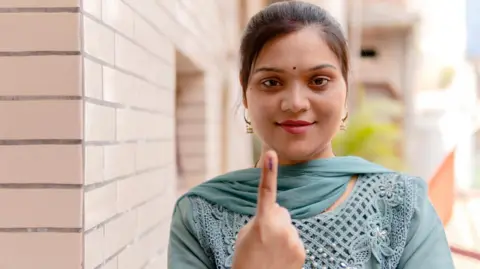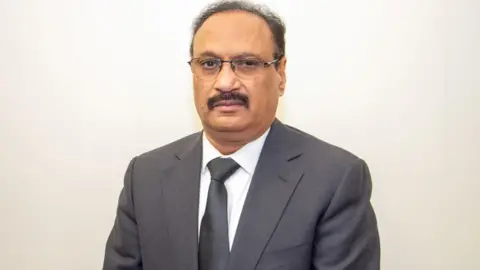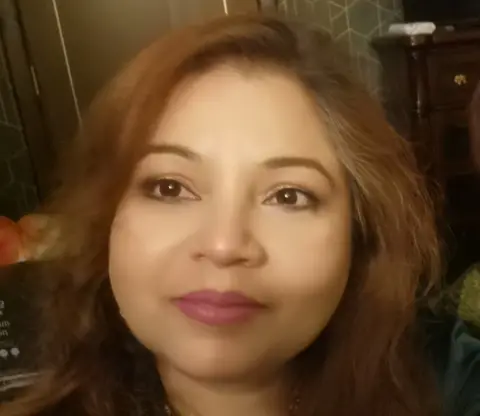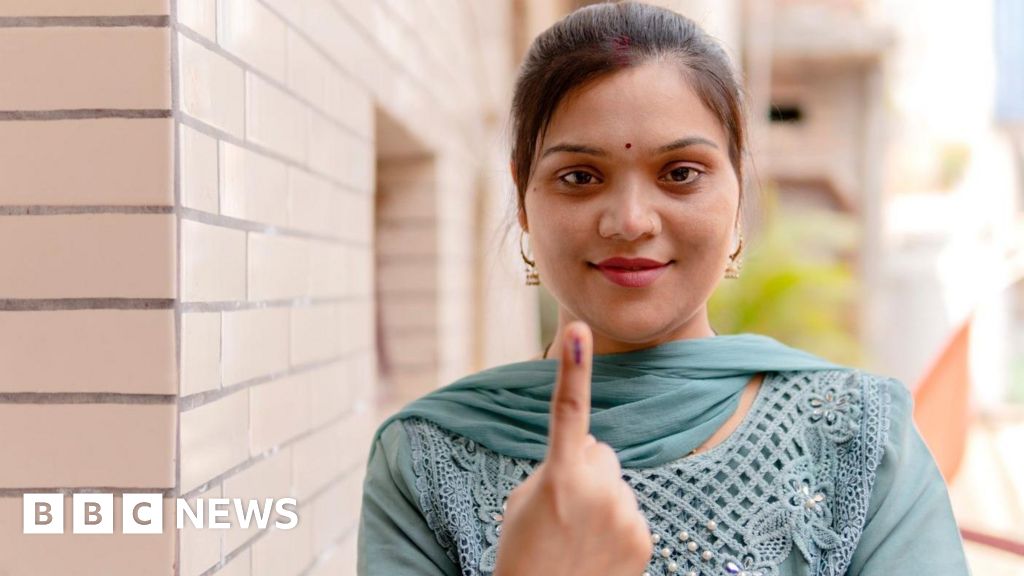Perisha Kudhail,BBC News, Midlands
 Getty Images
Getty ImagesAs results are counted in India’s general election, the Indian diaspora in the UK will be keeping a close eye on the results expected on Tuesday.
Exit polls suggest prime minister Narendra Modi is likely to win a third term, when votes from the 969 million eligible electors are counted.
Many in the UK follow the political landscape of the world’s biggest democracy for varying reasons.
This might be because they have family there, feel a connection with where they come from or simply want to show their support for certain political ideals.
Key points about the Indian election
- India’s general election is the world’s biggest election and started back in April
- As leader of Bharatiya Janata Party (BJP) Prime Minister Narendra Modi has attended over 200 public events on the campaign trail
- Congress is India’s largest opposition party, led by president Mallikarjun Kharge, alongside siblings Rahul and Priyanka Gandhi
- There has been criticism that the BJP has used discriminatory sentiment in its campaign, including anti-Muslim rhetoric
- Supporters cited Mr Modi’s policies like welfare schemes and growing the economy
‘A great job’
President of Overseas Friends of BJP (OFBJP) Kuldeep Shekhawat said that the party was doing a great job.
“The country is progressing and we are a bunch of people here in the UK who are supporters of the ideology of the BJP,” he said.
The group showed its support with campaigns and marches, including in Birmingham and London.
Mr Shekhawat said that the Hindu-dominated party in India was happy there was a show of support from the UK.
 Kuldeep Shekhawat
Kuldeep Shekhawat ‘The challenges that people are facing are very real’
Others in the community have opposed the BJP.
Dr Manisha Maganji lived in India but said she moved to Dudley in the West Midlands after facing discrimination.
“There was some discrimination based on being a Christian kid,” she said.
Dr Maganji spoke of the violence and verbal abuse that Christians and Muslims were faced with, and said it was more accepted after the BJP won the last election.
She told the BBC she felt worried for her close family who are still in India as they are practising Christians.
 Dr Manisha Maganji
Dr Manisha Maganji ‘It’s very easy to play on people’s fears’
Aasiyah, a British Asian Muslim from Leicester, talked about BJP campaign material which she said played on Hindu resentment against Muslims.
She said she felt the religious divide in India between Hindus and Muslims mirrored itself in the UK.
Aasiyah remembered amicable and close friendships with the Hindu community in Britain, but as tensions rose in India, so did the divide in UK.
“It’s easy to build those resentments and become sort of different communities,” she said.
Aasiyah family is in Gujrat, where she said they still feel trauma following the Gujrat Riots in 2002.
She spoke of a visit her mother made to India, during which there were calls for the destruction of a mosque and open anti-Muslim sentiment.
With her family currently living in a BJP-majority area, she said she worried for their safety during the politically-sensitive post-election period.
Follow BBC News’ India coverage for more on the election.


